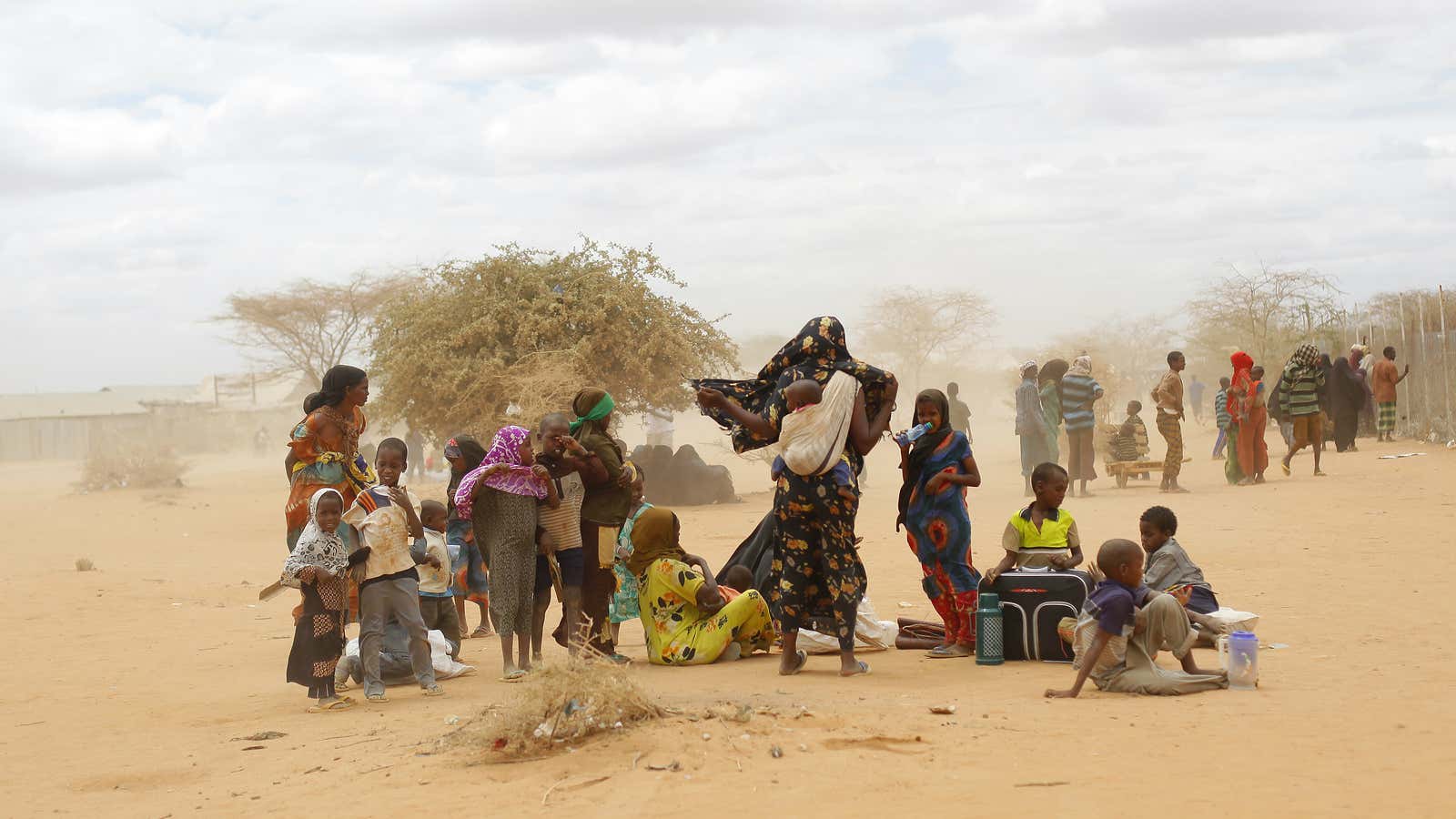When world leaders meet in Paris this December to agree on measures to fight climate change, they will be amply armed with information about how rising global temperatures affect the developed world. But they’ll be considerably less informed about the potentially far more devastating effects expected elsewhere. That’s because scientific research on climate change that concerns, or is produced in, the poorest and most vulnerable countries is largely missing.
A new analysis of 15,000 papers published between 1999 and 2010 found that relatively little of the world’s climate research comes from, or focuses on, developing countries with warmer climates—and that scientists who do focus on those regions have fairly distinct networks from scientists in richer countries with cooler climates.
The study, published in Global Environmental Change, suggests that this skewed focus limits the ability of the most vulnerable countries to prepare for the impact of climate change and adapt.
The findings show that climate change papers focused on countries with higher democracy scores, press freedom, and membership in the World Trade Organization. Study co-author Maya Pasgaard at the University of Copenhagen tells Quartz that this has knock-on effects on policymaking. Politicians are “often fed with data and arguments to qualify their decisions on mitigation and adaptation,” she says, but this data is short on contributions from the regions and countries most at risk.
In order to be able to give these regions a strong enough voice to influence international policy, Pasgaard explains, researchers have to work on ensuring that the “scientific” voice of those based in the most vulnerable countries is not silenced. Even papers focused on these regions frequently lacked contributions from local authors. Only about a fifth of the studies on climate change in Africa had a lead author local to the region—whereas two-thirds of the research on developed countries had a lead author who was locally based.
“We Northern-based researchers can to a greater extent actively include local partners—be it students, researchers or practitioners— in producing, disseminating and implementing knowledge,” Pasgaard says.
